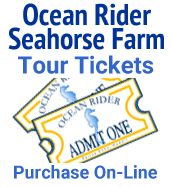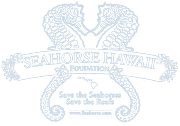Ocean Rider Seahorse Farm and Tours | Kona Hawaii › Forums › Seahorse Life and Care › ok then Mr.Pete
- This topic has 1 reply, 2 voices, and was last updated 16 years, 9 months ago by Pete Giwojna.
-
AuthorPosts
-
October 29, 2007 at 1:11 am #1300Registering_DeanMember
Promise to reach u soon at ur E- mail, once i bought a digital camera for aquarium n will do upload my seahorse for u to identified , and the glassy seahose at Seaworld i told u about.., k? Thanx again B)
Someone from Jakarta- Indonesia read this forum too and contact my E- mail, they ask me to go to island to snorkling and find whatever coral we could collect..what should i do once the coral is ready to brought home?, should i carantine it first?
And nearly most of every sea creatures here in Indonesia is wild caught, my seahorse too [color=#FF0000](i asked the dealer, refers to ur question, u said its important to know, rite?)[/color]..i found an information that says Indonesia is the second country which export many many sea creatures after Philipines…:dry:
Catch u again…. soon Mr.Pete
October 29, 2007 at 10:34 pm #3861Pete GiwojnaGuestDear Dean:
Excellent — that would be great if you could send me some digital photographs of your seahorse so that I can help you identify it, and I would be very interested in seeing pictures of the glassy white seahorse with no wise that was collected for Seaworld in Jakarta.
That sounds like an amazing diving trip you have planned and I hope you are able to find some choice live corals to add to your collection. I have never had the opportunity to collect live corals personally — that practice is illegal in U.S. coastal waters — but I would be happy to offer some suggestions for caring for any of the coral that you harvest in order to assure that it arrives home with you safely and healthy.
First of all, you’ll want to be very selective and judicious when you harvest the coral and take great care to avoid injuring or damaging the reef inadvertently during your activities. Be careful where your step and don’t let your anchor damage the reef proper! Since your home aquariums are rather small, you might want to consider bringing home only a few hand-picked corals frags rather than collecting entire coral heads.
Don’t harvest anymore coral frags then you are absolutely sure your aquariums can safely accommodate, and place each piece of coral that you collect in a separate container of ocean water so that they don’t wage any border battles and damage each other in your collecting container. Keep the collecting container’s covered with a wet towel at all times. This will protect them from the hot sun and help prevent them from overheating via evaporative cooling. Replace the ocean water in your collecting buckets with fresh seawater regularly throughout your trip to make sure each piece of coral has plenty of clean, well oxygenated water at all times. If possible, bring several battery operated air pumps with you so that you can keep an airstone in each of the collecting buckets.
When you get the live coral home, it shouldn’t be necessary to quarantine it as far as your seahorses are concerned. Live coral shouldn’t harbor any pathogens or parasites that could be harmful to fish. But you’ll have to be very careful when placing the coral in your aquariums. Be sure to give the new frags plenty of space so that nearby corals don’t attack or injure them, and take care to place them in an area where the water movement and lighting is suitable for their needs. And, of course, if you bring home any marine fish, they should be quarantined carefully before you introduce them to your display tank(s).
If you’re going to be housing any of the coral you collect in your seahorse tank, then it’s best to restrict yourself to soft corals or SPS corals, since LPS corals and sometimes present a risk to seahorses. The small polyped stony (SPS) corals have tiny polyps that extend out of minute openings in the stony skeleton, and generally have weak stings that should not pose a threat to seahorses. Depending on conditions in the tank, SPS corals such as Acropora, Montipora, Pocillipora, Porities, Seriatopora and Stylophora can be tried freely at your discretion.
The large polyped stony (LPS) corals, however, are generally best avoided altogether. These include genera such as Catalaphyllia, Cynarina, Euphyllia and Trachyphyllia that have large fleshy polyps which often have tentacles equipped with powerful stinging cells. The Euphyllia and Catalaphyllia have the most powerful nematocysts among the LPS corals, and can deliver stings that are stronger than most anemones (Delbeek, Oct. 2001).
Finally, but perhaps most importantly of all, make sure it it is legal to collect corals in the area where you will be snorkeling, and that you obtain any necessary permits or licenses beforehand. You don’t want to be poaching in a sanctuary, wildlife reserve, or underwater park, which could have serious consequences both for yourself and the local ecosystem.
Best wishes with all your fishes (and invertebrates), Dean!
Happy Trails!
Pete Giwojna -
AuthorPosts
- You must be logged in to reply to this topic.





